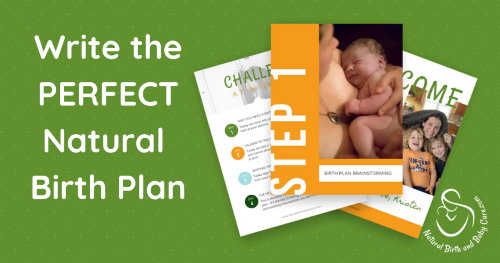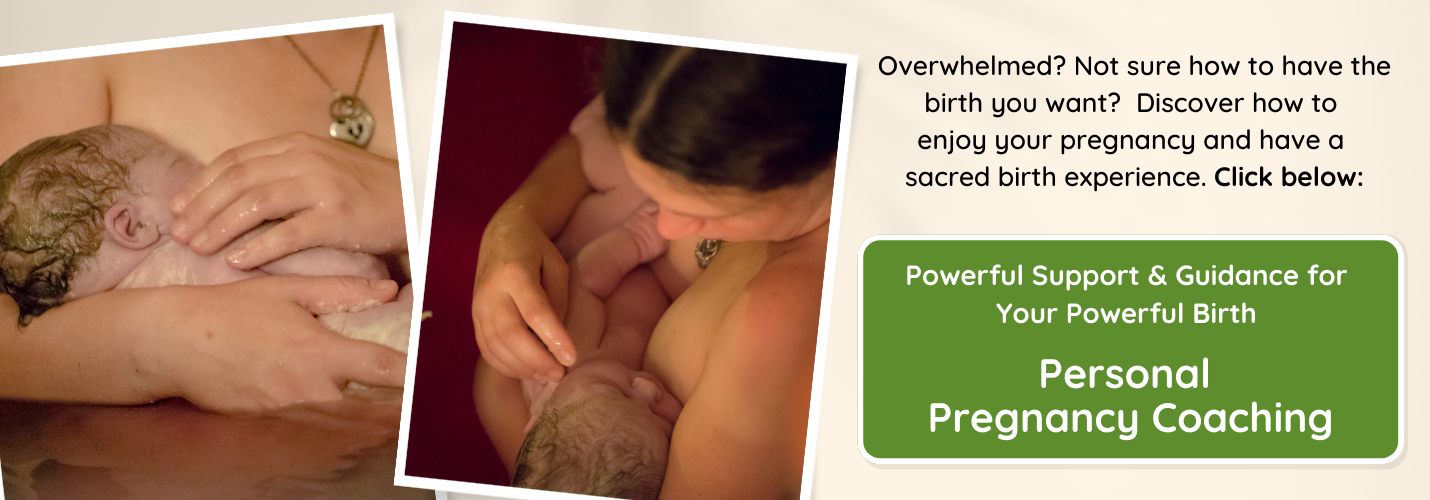Interested in fetal motion? Questioning in regards to the kicks, rolls, and rhythmic jerks you’re feeling out of your child? I’ll allow you to perceive all sorts of actions and what to anticipate with them!
Fetal motion is the feeling of your child kicking, rolling, or hiccuping inside your womb. First actions could really feel like tiny flutters that progress to robust kicks as your child grows. You might really feel rhythmic jerks in your stomach in case your child has hiccups!
Reader Angela Asks About Rhythmic Jerks:
I’m 8 months pregnant. I began to really feel actions after the seventh month was accomplished. I really feel a repetitive motion (normally on the similar level) by the child and it does cease till I stroll round.
It might go on for minutes if I let it.There may be at all times a rhythm to the jerks,like each 1 to 1.5 seconds and the situation doesn’t change as soon as it begins. Altering positions or bouncing whereas sitting will not be serving to now.
This happens not less than as soon as a day. It may be fairly irritating and in a while worrisome that the child is in some form of misery and even having matches. In earlier scans the child strikes in a wave-like movement with rhythm. It appeared fairly unusual however the physician mentioned its okay.
I’d like to inform the OB/GYN however don’t know learn how to specific it medically. Its not the uterus having spasms or Braxton hicks however undoubtedly the child’s motion.
Do I must be involved over this?
Here is my reply to Angela…
and a whole dialogue of child’s motion sample!
Hello Angela,
You need to at all times ask your physician about issues should you’re involved – and don’t fear should you assume it’s foolish. Your physician has heard sillier questions earlier than 😉
Having mentioned that, what you’re describing sounds very regular to me – in truth, it seems like your child has the hiccups 🙂
Many, many ladies discover that their infants get the hiccups rather a lot. I’ve at all times had very lively infants… and infants who have been continuously hiccuping, even within the womb.
We have no idea why infants hiccup a lot within the womb, however it’s a indisputable fact that they do (a lot of hiccups!)
It’s most likely typically in the identical location as a result of at this level your child is fairly settled right into a place, so you’re feeling the actions in the identical locations.
Learn on for extra info on fetal motion:
Understanding Fetal Motion: Your Child’s First Language
Most pregnant mothers begin feeling fetal kicks close to the top of the second trimester. Ultimately, the motion ranges from mild flutters to lively kicks, rolls, and even hiccups. These actions are your child’s means of speaking, “Hey, mama, I’m right here and rising!”
The Significance of Fetal Motion for Your Child
You might be questioning why fetal exercise is vital. They’re greater than only a candy sensation so that you can really feel. Every kick and roll performs a significant position in your child’s improvement. Good motion = wholesome infants.
The Advantages of Fetal Motion for You
Feeling your child transfer inside you is a tangible reminder of this new little life. It additionally helps create a deep, emotional connection along with your child.
(NOTE: Making an attempt to steadiness your being pregnant, life, and preparing for child? Use my guidelines pack keep wholesome (naturally), organized, and assured all through your being pregnant! Get them here.)
You may reply to child’s actions with mild pats and phrases (your child learns to acknowledge your voice!). Bear in mind, this expertise is not only about monitoring your child’s well being, but additionally about bonding along with your baby, making ready for motherhood, and discovering pleasure within the journey.
I nonetheless miss feeling my infants’ actions in my stomach!
Bear in mind, each pregnancy is exclusive, identical to each child’s actions. There are typical actions and a daily sample for many infants, although, so let’s speak about that subsequent.

Understanding Your Child’s Actions Throughout Being pregnant
As an skilled mom of eight and a devoted being pregnant coach, I’ve had the enjoyment of feeling and observing fetal motion’s pleasure numerous occasions. It’s a novel language, a particular means your child communicates with you from inside the womb.
The Preliminary Quickening: A Mild Flutter
The primary fetal actions you’ll possible discover, sometimes between weeks 16 and 22 of your being pregnant, really feel like a mild fluttering. For those who’re a first-time mother, you may really feel these sensations later.
Nevertheless, if that is your second or subsequent being pregnant, you’ll possible detect these flutters sooner than in your first being pregnant.
An anterior placenta (when the placenta sits on the entrance of the uterus) can masks early kicks.
This delicate effervescent or tickling feeling of early fetal actions is your child stretching their tiny legs and arms.
Wave-Like Rolls
Your child begins to regulate his/her place or orientation in your womb. That is when it’s possible you’ll begin to really feel what’s generally referred to as rolling. Image a clean, wave-like movement inside your stomach.
It’s your child flipping from a head-down to a breech place (bum down) or vice versa. This motion signifies that your child is exploring his or her tiny world.
Many mamas fear about child’s place, however it’s regular for infants to flip forwards and backwards between breech and vertex (bum down and head down) many occasions all through the day earlier in being pregnant.
Click here for more information on baby position in the womb (together with illustrations and a video on discovering your child’s place your self!).
Child could not flip fairly as a lot in first pregnancies as in later pregnancies, when your muscle mass are somewhat extra relaxed. However some infants are very lively and flip rather a lot, no matter should you’re a primary time mother or not!
Within the final trimester, when your child is larger you will not really feel these actions as a lot, however infants can and do flip rather a lot till round 30-32 weeks.
The Swift Swish
Subsequent comes the swishing. This swift or forceful motion appears like a swooshing or sliding sensation inside your stomach. It’s your child shifting an arm or leg alongside the uterine wall.
Sudden Flips
Sometimes, you may sense a sudden or jerky motion inside your stomach. That is your child performing a somersault or a flip. It could really feel just like a roll, or really feel jerkier, like somebody attempting to get snug in mattress.
This sensation could solely start as soon as child is simply too huge to flip easily. It may be stunning, particularly the very first time you’re feeling it.
Some infants don’t appear to make these large actions, although they might be slower at turns, or an anterior placenta might masks motion.
Fast Ripples: A Dance of Motion
You may additionally expertise what I prefer to consult with as ripples. These are mild, fast, and consistent-intensity actions.
Ripples are mainly an in-womb dance routine! They’re a sign of your child’s growing agility and reflexes.
Elbow Nudges: A Sharp Push
You might really feel a pointy or pointed sensation as your child stretches or pushes his or her elbows towards your stomach. These elbow nudges can generally go away you feeling tender (a foot could cause this, too). You may gently push again to get child to maneuver his or her elbow/knee.
Highly effective Kicks: A Sturdy Communication
And lastly, there are the anticipated kicks and punches. These kicks go away no room for doubt about your child’s energy. Whether or not it’s a response to your voice or contact or just an indication of child’s exercise, these kicks are a transparent signal of his or her presence!
Bear in mind, every child is exclusive, and so is his or her sample of actions. Nevertheless, understanding what to anticipate may also help you bond along with your child and interpret their little indicators. Cherish these treasured moments, mama!
(NOTE: Need a Excellent Delivery Plan Template? Use this template and step-by-step movies to put in writing a start plan that will get your start group in your facet for a fantastic start expertise! Get the birth plan kit here.)
Understanding Fetal Hiccups
Someplace in your second trimester, you may really feel a rhythmic pulsing or twitching sensation in your stomach. It’s completely different from the kicks and flips you’ve grown used to; that is extra constant and extra rhythmic. It might even really feel just like the rhythmic jerks Angela described within the query above.
Fetal hiccups are a sort of motion your baby makes when s/he contracts his/her diaphragm, the muscle that separates the chest from the stomach. That is one of many some ways your child prepares for all times outdoors your womb.
Why Do Unborn Infants Get Hiccups?
You’re most likely questioning why fetal hiccups occur. There are a number of causes:
The Frequency of Fetal Hiccups
The frequency and period of fetal hiccups can fluctuate considerably. Some infants could hiccup just a few occasions each day, whereas others could solely achieve this often. Usually, they final for a couple of minutes, however generally, they will last as long as an hour, which is likely to be a bit uncomfortable for you.
Bear in mind, each child is exclusive and may have their very own sample of actions and hiccups. My first child had the hiccups steadily within the womb – and he or she acquired them a ton when she was born, too. She nonetheless will get hiccups extra typically than any of my different youngsters!

Fetal Motion Patterns: What You Must Know
You might discover that your child’s actions observe a sample. Totally different patterns of motion emerge all through being pregnant. Components like weight loss program, exercise ranges, and even the time of day can affect them!
Understanding Your Child’s Sleep Cycles
Sleep cycles alternate between completely different phases of sleep, comparable to fast eye motion (REM) sleep and non-REM sleep.
These cycles immediately influence fetal motion as they mirror the exercise and improvement of your child’s mind. Within the REM stage, the fetal mind is extra lively, exhibiting mind waves just like these of an awake mind. This heightened exercise typically will increase actions like kicking, stretching, or hiccuping.
Throughout non-REM sleep, the fetal mind slows down, leading to fewer actions as your child rests and conserves power.
These sleep cycles sometimes emerge across the seventh month of being pregnant, marked by the primary noticed fast eye actions. The period and frequency of those cycles can fluctuate primarily based on the gestational age, the time of day, and components like your weight loss program, stress, and exercise.
How Your Eating regimen Influences Fetal Motion
Your weight loss program doesn’t simply hold you low-risk and your child wholesome…
…it influences your child’s actions, too!
Much like how sure meals can have an effect on your power ranges and temper, they will additionally stimulate your child, resulting in elevated motion. As an illustration, meals excessive in sugar or caffeine could make your child extra lively.
A protein-rich, nutrient-dense weight loss program can lead to extra common and constant motion patterns. Click here for more on how your pregnancy diet can keep you low-risk and baby healthy!
If you wish to get your child shifting, a snack with sugar can typically wake your child up!
Your Place and Your Child’s Actions
Your physique place can considerably affect how a lot you’re feeling your child transfer.
Most mothers report feeling their child’s actions extra when mendacity down or sitting.
It’s because you’re extra more likely to discover delicate actions while you’re nonetheless. However while you’re standing or shifting round, there’s much less motion, and these kicks may mix along with your actions, making them much less noticeable.
Infants hardly ever transfer while you’re up and strolling round!
Instances of Day
Your child’s sample will rapidly change into established, and you’ll possible discover extra motion within the night hours. This is a superb time to do kick counts (mentioned under), as a result of most infants get extra lively at evening.
Infants are usually extra lively as soon as you agree down, so that you’ll discover lots of motion – typically, it appears like your child is executing acrobat maneuvers! Count on extra motion out of your unborn child as you’re sitting quietly; many infants are particularly lively as you’re attempting to get to sleep!
Fetal Motion Patterns: A Trimester-by-Trimester Information
Pregnancy is an ever-evolving journey, along with your little ones actions altering relying on the weeks of being pregnant. Right here’s an summary:
First Trimester: Your Creating Child
First being pregnant, second being pregnant, or past, the largest query is normally, “When will I really feel my child transfer?” As a being pregnant coach and mom of eight, I’ve discovered it’s uncommon for mamas to really feel motion throughout the first trimester (weeks 1-12).
Your baby remains to be too tiny – however s/he’s growing quickly now!
By the eighth week, your child begins to maneuver, however these motions are spontaneous and pushed by primitive reflexes and the brainstem. (Bonus truth: Across the sixth week, your child’s coronary heart begins to beat, which will be detected through ultrasound scan).
Click here for more on first trimester development
Second Trimester: The Quickening
Within the second trimester (weeks 13-28), issues actually get thrilling! Between 16 and 22 weeks, you’ll begin to be aware your child’s first actions, known as “quickening.”
It appears like a mild fluttering or effervescent sensation in your decrease stomach. For me, these first kicks have been extra like tiny bubbles popping inside my decrease stomach.
Initially, you may not really feel it each day as your child’s actions are nonetheless irregular and delicate. Nevertheless, you will discover patterns as your child’s actions change into extra organized and rhythmic.
Like I famous above, you will discover patterns as your child’s actions change into extra organized and rhythmic You may discover your child is extra lively at sure occasions of the day, comparable to after a meal or snack, or throughout the night or morning.
Your child will even reply to your voice, contact, or music as s/he develops tactile, auditory, and visible techniques.
Click here for more on second trimester development
Third Trimester: Vigorous Actions
As you enter the ultimate stretch, the third trimester (29-42 weeks gestation), your child’s actions change into extra vigorous and noticeable.
It’s because your child has much less room to maneuver in your womb. You’ll expertise quite a lot of actions, from kicks and punches to rolls, twists, stretches, and people hiccups!
Your child will even have common sleep and wake cycles, and also you may discover that s/he’s extra lively at sure occasions of the day or evening.
As you strategy your due date, you may discover modifications in your child’s actions, comparable to altering place, or dropping decrease.
Opposite to common perception, your child ought to transfer as a lot on the finish of being pregnant as throughout earlier being pregnant. For those who discover fewer actions, let your care supplier know.
Bear in mind, every child is exclusive, and so is their motion sample. Belief your instincts! You’re already your child’s number-one advocate!
Click here for more on third trimester development
Fetal Neurobehavioral Improvement: Why Infants Transfer
Ever been curious in regards to the flurry of exercise inside your stomach? These kicks and actions are extra than simply indicators of wakefulness and exercise. They’re the manifestation of your child’s neurobehavioral improvement, a course of the place the mind and nervous system mature, influencing their conduct and motion.
The 4-Stage Mannequin:
Let’s discover the four-stage mannequin, a framework that outlines this course of:
Stage 1: The Balancing Act (Weeks 7-14)
Within the first stage, your child’s vestibular system, which governs steadiness and orientation, is being developed. These preliminary tiny flutters you’re feeling? That’s your child attempting out his/her newfound balancing expertise!
Stage 2: Getting a Really feel for Issues (Weeks 15-24)
The second stage is about growing the proprioceptive system, which lets your child sense the place and motion of their limbs. Your child is beginning to perceive his or her physique, studying the dance of limb coordination.
Stage 3: Contact and Go (Weeks 25-32)
The third stage brings the event of the tactile system, enabling your child to really feel contact and ache. When your child responds to your stomach rub, it’s the tactile system at work!
Stage 4: The Remaining Act (Weeks 33-40)
The final stage revolves across the auditory and visible techniques. Your child can now hear and see, heightening their consciousness of their environment. These moments when your child appears to react to your voice or a lullaby? That’s their auditory system in motion!
The Three-Section Mannequin: Adapting to Life Inside
One other perspective on fetal neurobehavioral improvement is the three-phase mannequin, which underscores your child’s improvement’s dynamic and adaptive nature.
Section 1: The Early Strikes (Weeks 7-19)
In the course of the first section, your child’s actions are spontaneous and random, propelled by primitive reflexes and the brainstem. It’s his/her first foray into the world of motion.
Section 2: Rhythm and Routine (Weeks 20-31)
Within the second section, your child’s actions evolve to be extra organized and rhythmic, mirroring the affect of circadian rhythms and the limbic system. It’s as in case your child is settling right into a routine with predictable intervals of exercise and relaxation.
Section 3: The Remaining Stretch (Weeks 32-40)
Within the remaining section, your child’s actions change into extra complicated and variable, modulated by cortical exercise and sensory suggestions. That is when your child fine-tunes his or her actions, gearing up for all times outdoors the womb.
Why Does This Matter?
Understanding this journey of fetal neurobehavioral improvement can present insights into regular and irregular patterns of fetal motion and conduct.
It might supply clues about their well being and potential, assist determine any danger components, and improve your bond along with your child. It additionally promotes prenatal stimulation and schooling!
So the subsequent time you’re feeling your child transfer, keep in mind, it’s not only a kick or a roll – it’s a peek into your child’s improvement!

Partaking with Your Child’s Actions
Do you know your child can hear your voice from contained in the womb? Analysis signifies that infants begin to acknowledge their mom’s voice within the third trimester.
You may have interaction along with your baby all through the day by sharing your ideas, desires, and favourite songs. You might discover elevated motion or kicking while you’re talking or singing. This interplay strengthens your bond, laying the inspiration for a lifetime of affection and connection.
The Energy of Contact
Gently massaging your stomach throughout being pregnant is not only soothing, it additionally creates a bodily connection along with your child. As you glide your fingers over your stomach, be aware how your child responds to your contact. The shifts and kicks you’re feeling present his or her consciousness of your contact.
Taking part in Video games with Your Child
Yep, you can begin taking part in video games along with your child whereas she or he remains to be within the womb! Attempt tapping gently in your stomach and see in case your child responds with a kick or a wiggle. This interplay is enjoyable and gives a glimpse into their growing persona.
Involving Your Companion and Household
Sharing the expertise of fetal motion along with your associate or different members of the family generally is a incredible option to contain them in your being pregnant journey.
Encourage them to really feel your child’s kicks or to speak to your child. This creates a way of connection and anticipation amongst your family members, strengthening the bond along with your child.
Imagining Your Child’s Persona
Your child’s motion affords a peek into his or her little world. As you’re feeling your baby transfer and reply to your voice or contact, you may begin to think about what they appear like or their persona.
This means of imagining your child can foster a deeper connection and heighten the joy about assembly her or him.
Each being pregnant is exclusive, and each child has a sample of motion. So, take the time to tune into your child’s distinctive rhythm and reply with love and a spotlight. These moments of connection will kind the inspiration of the gorgeous bond you’ll share along with your baby.
The Energy of Kick Counts: A Information to Monitoring Your Child’s Well being
Kick counts, also called fetal motion counting, are a simple and efficient option to monitor your child’s well-being.
This methodology includes monitoring your child’s actions inside a selected timeframe, offering you with precious insights into his or her well being and habits.
The Significance of Kick Counts
Kick counts serve a number of essential functions. Primarily, they provide a sensible methodology to watch your child’s well being. Shifts in your child’s motion patterns could point out misery or a possible concern.
Furthermore, kick counts allow you to change into acquainted along with your child’s habits and rhythms. It’s a fantastic alternative to attach along with your child earlier than s/he’s even born, as you’ll begin to acknowledge when child is most lively or when s/he’s possible resting.
Lastly, kick counts allow you to bond along with your child. Experiencing your child transfer is an exhilarating a part of being pregnant, and kick counts will let you cherish these moments.
How To Do Kick Counts
Doing fetal kick counts is easy. Observe this step-by-step information:
Need private help to remain wholesome and low-risk by your being pregnant? Eager for genuine steerage to make your sacred start dream a actuality?
Click to book a pregnancy and birth visioning call with me. We’ll speak about your hopes and desires and discover if my being pregnant teaching program is an effective match for you.
When to Seek the advice of Your Healthcare Supplier
At all times contact your healthcare supplier should you discover something uncommon about your child’s actions. This might embrace fewer than 10 actions in 2 hours, no actions for greater than 12 hours, extraordinarily robust or painful actions, extreme fetal actions, or actions that trigger contractions or bleeding.
Addressing Decreased Fetal Motion
Decreased fetal motion (DFM) refers to a decreased frequency or depth of your child’s actions. DFM might be on account of maternal components like weight problems, smoking, medicines, or stress, fetal components comparable to progress restriction or congenital anomalies, or placental points like placenta previa or insufficiency.
For those who expertise DFM, stimulate your child’s actions by altering your place, consuming or consuming, or taking part in music. Document your child’s actions and make an observation of every one. Contact your healthcare supplier instantly and put together for additional checks or interventions if essential.
Bear in mind, your instinct as a mom is highly effective.
If one thing feels off, honor that sense! Don’t hesitate to succeed in out to your healthcare supplier. Kick counts should not nearly counting actions, they’re about guaranteeing the well being and well-being of your treasured baby!
Kick Child Kick!
Feeling your child kick is without doubt one of the most treasured issues about being pregnant.
I discovered that every of my eight infants had completely different motion patterns – I discovered rather a lot about their personalities instantly. My lively infants are nonetheless my extra lively youngsters – and my laid-back child remains to be my most laid-back youngster 😉
Get pleasure from feeling your child’s actions! Holding observe of your child and the big selection of actions, patterns, and responses she or he makes is a chance to decelerate and bond along with your baby. Blessings to you each!
FAQ: Regularly Requested Questions
Listed here are some potential questions and solutions for the FAQ part of the web page about fetal motion:
Q: What are the primary indicators of fetal motion?
A: The primary indicators of fetal motion, quickening, normally happen between 16 and 22 weeks of being pregnant. You might really feel a mild fluttering, a sense of tiny bubbles popping, or a tickle in your decrease stomach.
These actions are sometimes delicate and simple to overlook, particularly when busy or distracted. As your child grows, the actions will change into stronger and extra frequent.
Q: What is sweet fetal motion?
A: Good fetal motion means your child is lively and wholesome inside your womb. Your child’s actions could fluctuate relying on the time of day, your exercise stage, and your child’s place.
Some infants are extra lively than others, and there’s no set variety of actions that it’s best to really feel. Nevertheless, it’s best to get to know your child’s regular motion sample and take note of any modifications.
Q: When ought to I be involved about fetal motion?
A: You need to be involved about fetal motion should you discover a major lower or improve in your child’s actions or in case your child stops shifting altogether.
This might point out an issue along with your child’s well being or well-being. For those who discover any of those indicators, it’s best to instantly contact your physician or midwife.
They might ask you to do a kick rely, a easy option to monitor your child’s actions. To do a kick rely, it’s best to lie down in your left facet and rely what number of actions you’re feeling in two hours. You need to really feel not less than 10 actions on this time. If you don’t, it’s best to name your physician or midwife instantly.
Q: How can I encourage fetal motion?
A: You are able to do some issues to encourage your child to maneuver extra, particularly if you wish to do a kick rely or simply bond along with your child. A few of these embrace:
- Ingesting a glass of chilly water or juice
- Consuming a snack or a meal
- Altering your place or exercise
- Taking part in music or speaking to your child
- Gently rubbing or massaging your stomach
Q: What are the advantages of fetal motion?
A: Fetal motion is an indication of your child’s well being and improvement and a means for you and your child to speak and bond. Feeling your child transfer may also help you to:
- Develop a better connection along with your child
- Find out about your child’s persona and preferences
- Put together for labor and start
- Cut back stress and anxiousness
- Improve your maternal instincts
(NOTE: Making an attempt to steadiness your being pregnant, life, and preparing for child? Use my guidelines pack keep wholesome (naturally), organized, and assured all through your being pregnant! Get them here.)
Extra Data on Fetal Improvement & Wholesome Being pregnant

Trending Merchandise

iHealth No-Touch Forehead Thermometer, Infrared Digital Thermometer for Adults and Kids, Touchless Baby Thermometer, 3 Ultra-Sensitive Sensors, Large LED Digits, Quiet Vibration Feedback, Non Contact
















